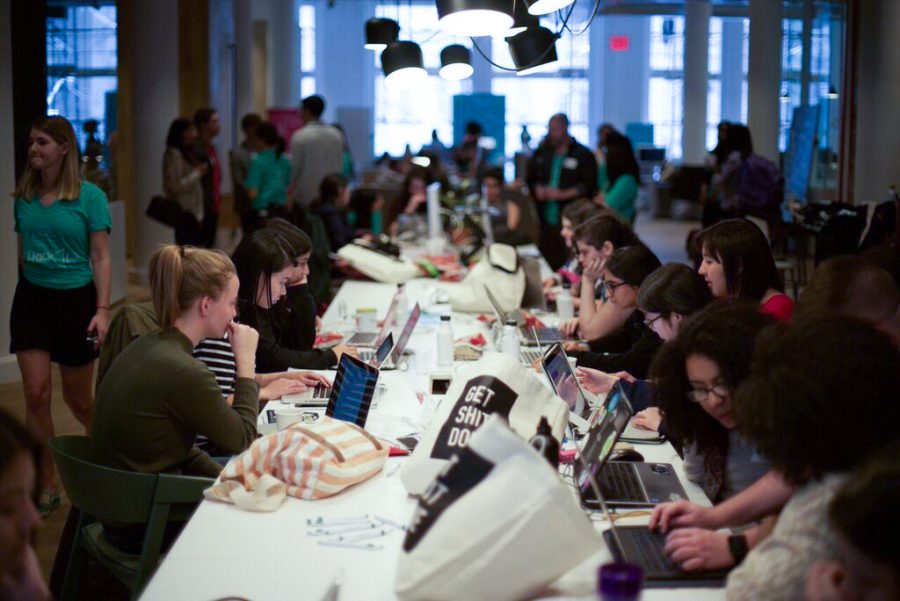New Scholarship Increases Gender Equality in Game Design
Women play video games just as much as men but are vastly outnumbered on the design side of the industry. A new NYU scholarship hopes to change that.
October 25, 2016
While nearly as many women play video games as men do, the video game development industry is disproportionately male — they make up 75 percent of the workforce. The NYU Game Center wants to change this disproportionality with the Barlovento Scholarship for Women in Games.
The NYU Game Center partnered with the Barlovento Foundation, a private grant making foundation, to create the scholarship. It is open to all women pursuing an MFA in game design through Tisch and pays recipients’ full tuition fees. The scholarship finances one woman at a time: it chooses one woman to support every two years, funds her two year MFA tuition and will continue over a span of six years — supporting three women in total.
Frank Lantz, the director of the Game Center, said he believes that this scholarship is mutually beneficial to both women pursuing this vocation and the video game industry.
“One of the issues facing game development is lack of diversity in the developers community,” Lantz said. “It is often very difficult for a woman to enter the field and survive in game development, so we have been making efforts to reach out to young women who are interested in games as their central career.”
While women are historically underrepresented in the technology industry, the gender gap is magnified in various video game industry divisions: women only comprise three percent of programmers and 12 percent of game designers.
Game Design MFA candidate Jennifer Helen Allaway is a contributing member of Gamasutra, a game development magazine, and she said that the efforts of the Game Center and the Barlovento Foundation will help make the field more inclusive, especially as sexism prevails in the games industry.
“This scholarship is necessary, because the only way to end the prolific amounts of sexism in the game industry is to have more women who work in it,” Allaway said. “By creating this scholarship, the faculty is openly supporting marginalized folk, including trans women, getting into game industry careers, and therefore reducing industry sexism.”
She thinks that because the scholarship recognizes female marginalization, many women will apply for it. Game Design first year grad student Anuva Aranee also thinks it will be attractive for women in the field, because she believes it is a great incentive for women worldwide to pursue a career in the video game industry. Aranee said that women in her home country of Bangladesh do not have the opportunity or resources to study in this field.
“I think what NYU did in bringing more women into this industry by providing them [a] scholarship was one of the best decisions they made,” Aranee said. “I’m proud to be a student of such a reputed school which takes initiative to help women grow and make changes in their vision through games.”
Lantz said he feels that this scholarship also acts as a symbolic gesture of support for women in the games industry.
“We’re hoping that it will have an impact not just on [women in the video game industry] that we are going to be helping directly,” Lantz said. “We are hoping to help send a message that games need more women developers.”
Email Herman Lee at [email protected].



























































































































































